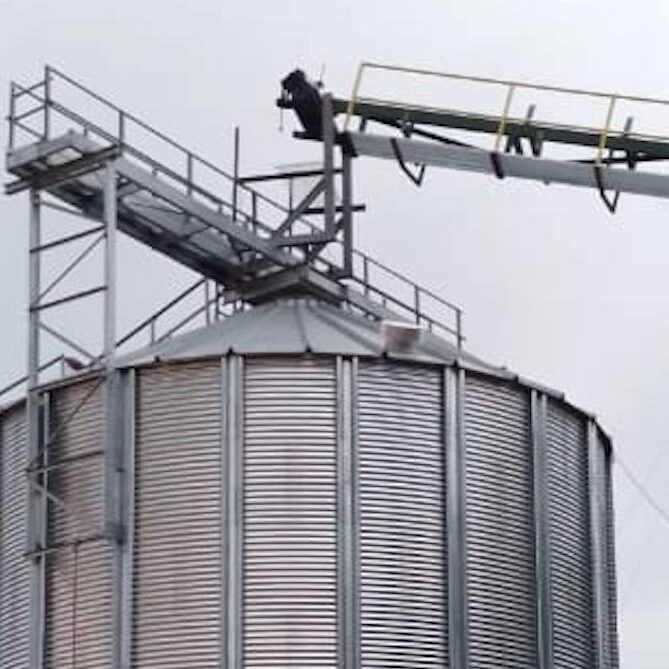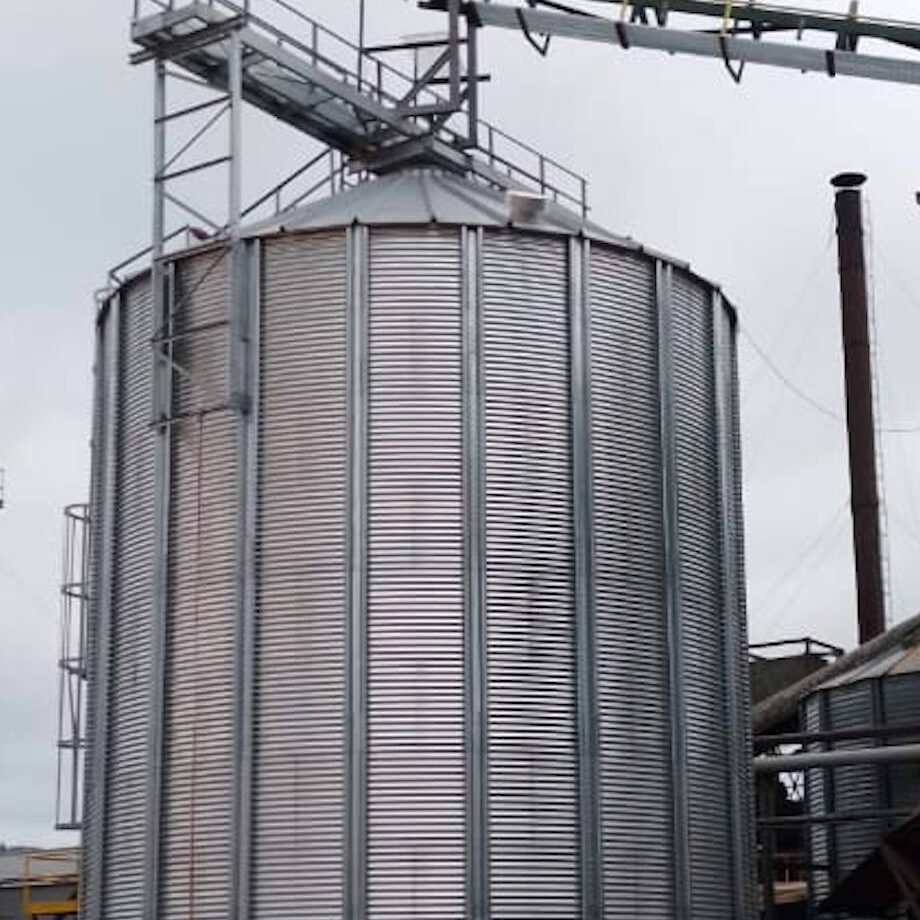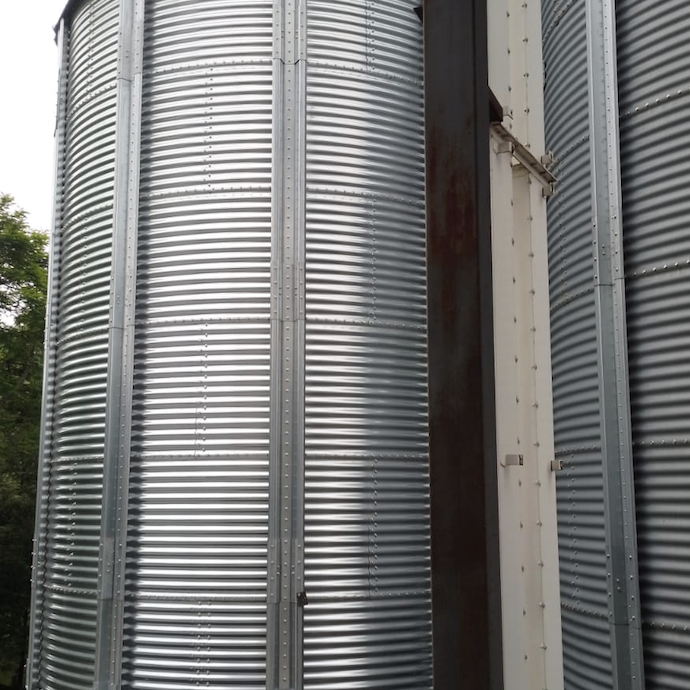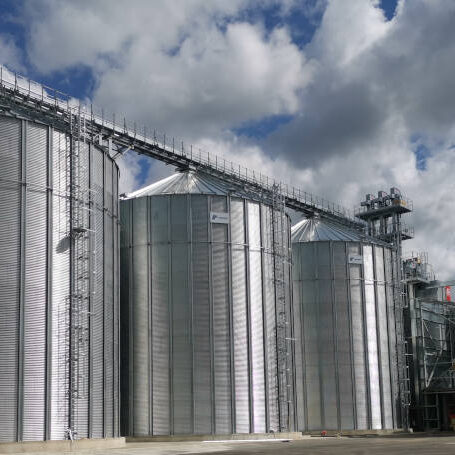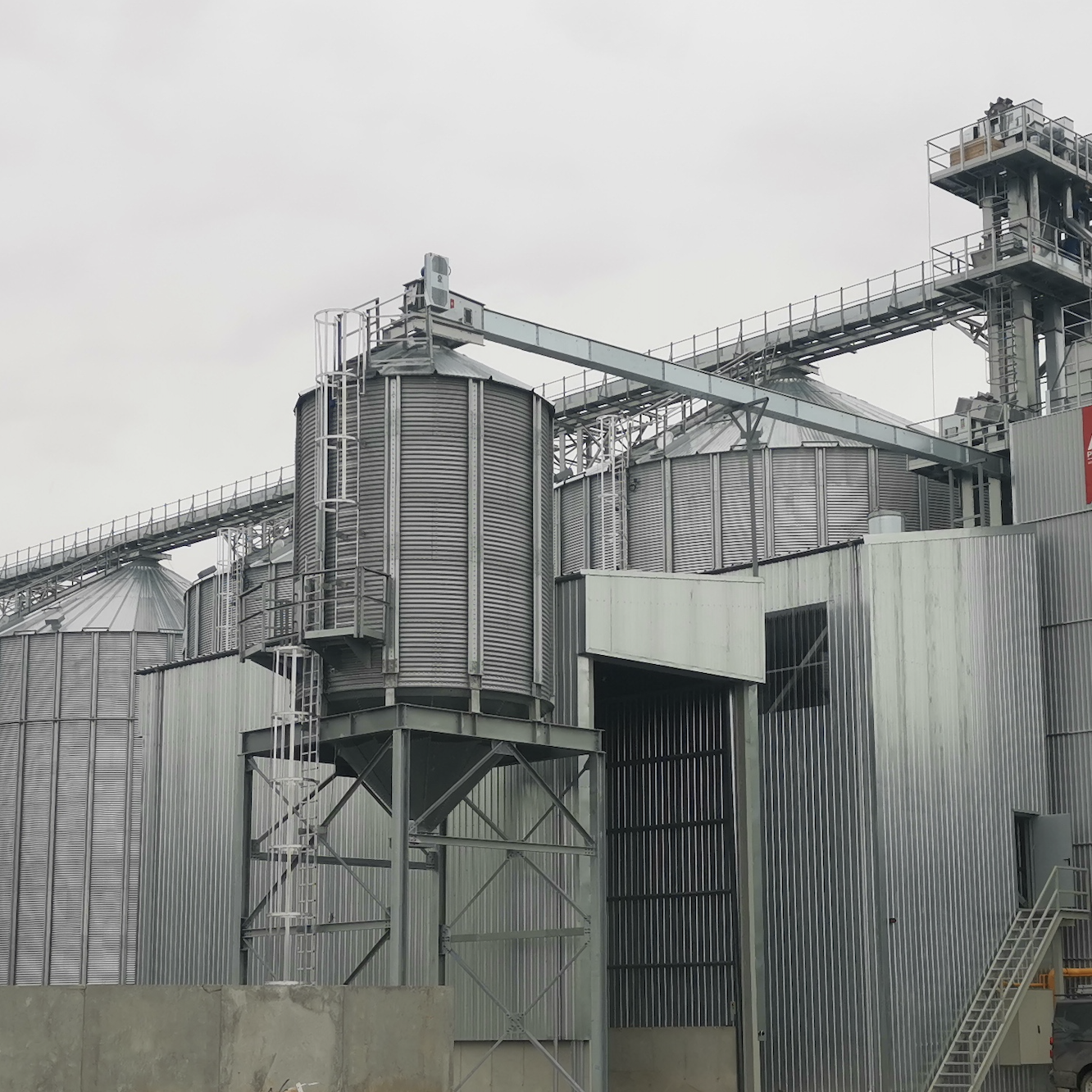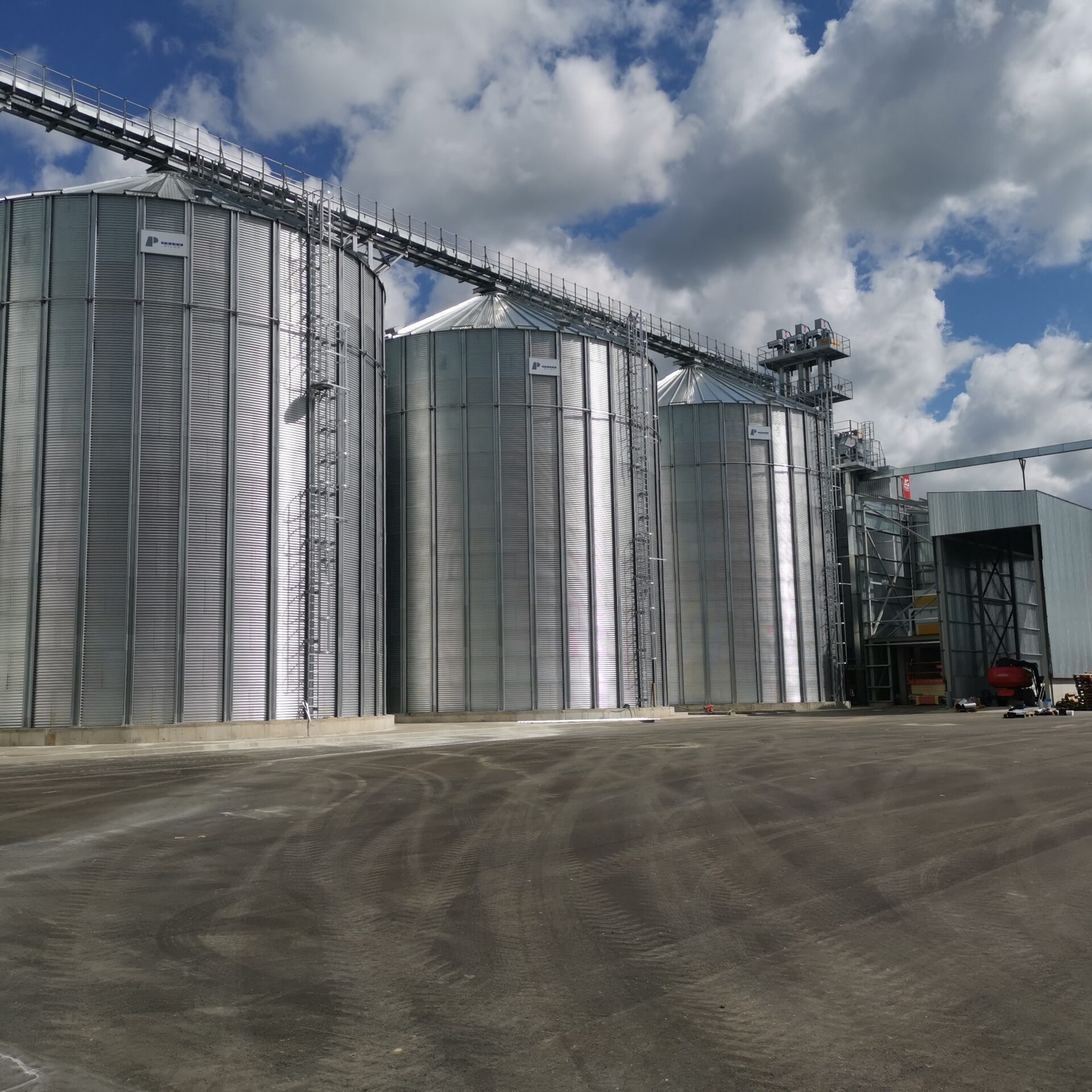Prado Silos develops specialised storage solutions all over the world, covering a myriad of industries, ranging from forest biomass silos in Uruguay to custom-built silos for cereals, specially designed for the blooming Lithuanian agricultural market. In the midst of a major shift towards greener agricultural and energy sectors, modern silos can play a key role when boosting sustainability and competitiveness of farming industries by providing advanced technology, while ensuring safe and efficient storage requirements.
Prado Silos has successfully completed the construction of a full set of silos for forest biomass storage in Uruguay, a country supporting an innovative and sustainable approach to the storage of organic materials derived from biomass. But what does biomass actually mean? Well, the term ‘biomass’ should be reserved for the raw material used in the production of biofuels.
.
Biomass is the living (and sometimes including recently dead) organic material synthesized by plants and other organisms. Forest biomass includes all parts of the trees, not only the trunk but also the bark, the branches, the needles or leaves, and even the roots. Trees are useful for energy because they convert sun energy into biomass through photosynthesis, a process that captures carbon dioxide from the atmosphere. Once collected, biomass can then be converted into solid, liquid, or gaseous biofuels that can then be burned for energy or used as fuel substitutes for transportation or industrial processes.
These biomass silos implemented by Prado Silos in Uruguay have been tailor-made and designed with state-of-the-art technology : an essential equipment for quality storage, constituting a significant milestone towards the generation of clean and sustainable energy. As countries, industry, and communities seek ways to reduce greenhouse gas (GHG) emissions to address the climate change issue, there is increasing interest in the use of forest biomass for bioenergy to offset energy from fossil fuels. Forest biomass has long been used to generate thermal energy through the burning of firewood and residual material from wood product production, but today the potential has become apparent as a source of electricity, complementary to other renewables such as wind and solar power.
Biomass is a carbon-neutral energy source, since the plants absorb CO2 from the atmosphere via photosynthesis and this carbon is eventually released to the atmosphere via the decay of biomass or by using it. Biomass in forests can be collected while at the same time the carbon stock in the forest is increasing, ensuring a carbon-neutral source of renewable energy.
While Brazil takes most of the credit for renewables in Latin America, Uruguay remains an unfairly underrated country in this area. In fact, Uruguay is virtually independent from fossil fuels. A combination of hydroelectric, wind, solar, photovoltaic and biomass energy feeds almost the multi-source and rapidly diversifying Uruguayan energy grid. According to UTE, the national electricity supplier, 97% of the overall energy generated in Uruguay comes from renewable sources, with an increasing share of biomass and spread at of generation and cogeneration power plants at national scale.
Strategically located in Uruguay, these new biomass silos implemented by Prado Silos offer secured and controlled storage for wood chips and other forestry waste material. At this stage, the state-of-the-art silo is part of a larger process. As such, it is essential to rely on high quality storage solutions, backed by full guarantees, and specifically designed to meet the requirements of a proper storage for each product.
When it comes to the biomass silos developed by Prado Silos, this equipment features specific characteristics and accessories specially adapted to this activity, such as flat internal walls built in galvanized-coated or stainless steel (in case of harsh materials), roof venting panels, entrance doors for vehicles, or super-reinforced structures designed to prevent possible explosions.
We travel now to the other side of the world, more specifically to Lithuania, where Prado Silos has developed a customised grain storage project for one of the country’s leading agricultural producers. After carefully studying the project requirements and the client’s specific needs, the Prado Silos manufacturing teams designed, built and installed several flat-bottom silos with customised dimensions, with an individual storage capacity of 3,839 m³.
The Lithuanian agricultural sector is characterised by relatively favourable production conditions, but faces multiple structural constraints, and therefore significant investments are being made to support the development of a competitive agro-food industry.
This project represents a golden opportunity for the expanse of Prado Silos in the Baltic countries, a crucial region for the EU agricultural economy that benefit from a dynamic farming industry, with high growth capacity and boosted by the current European support policies. Accordingly, investment in modern silos for agro-operations can assist in overcoming the structural constraints of Lithuanian agriculture by ensuring an efficient and reliable solution for the storage of farming bulk materials, thus improving the competitiveness of the whole sector and optimising the available resources.
The grain silos designed by Prado Silos are used both for short and long term storage of cereals, oilseeds, pellets and any other free-flowing granular material. Prado Silos manufactures flat or conical bottom silos mounted on concrete foundations, with a wide spectrum of volumes ranging from 21 m³ to 27,133 m³, with diameters from 3.64 m to more than 31 m. The flat-bottom silos include all the accessories required for the proper operation of an entire plant.

